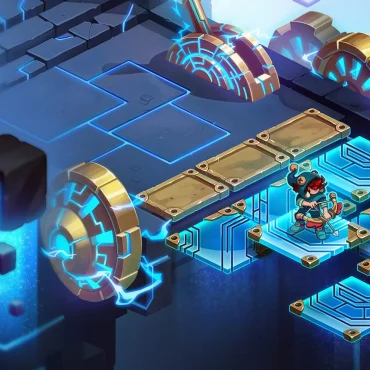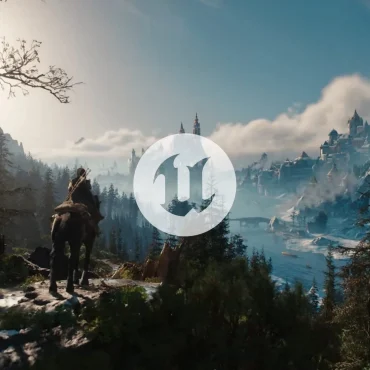Building a game takes more than good ideas — it requires solid structure, clear priorities, and teamwork. After over a decade of delivering projects across platforms, we’ve experienced firsthand that successful titles rely on clear planning and communication throughout every phase of full-cycle development. From pre-production to post-launch support, each step demands its own focus, approach, and expertise.
In this guide, we’ll walk through the essential game development stages as they happen in real projects: what they include, why they matter, and how studios like ours keep production efficient, transparent, and on schedule.
Pre-production

In the beginning, there was the word, and the word was Concept. Pre-production is the first stage of the video game development process, during which the team defines the game’s vision and begins design development. The main goal at this stage is to create comprehensive game design documentation, including the Vision Document (outlining the game as a business product), the Concept Document (detailing gameplay, story, and features), and art direction guidelines.
This documentation is where the Game Designer puts ideas into writing so that everyone (from developers to QA engineers) understands the project’s scope and direction. It also helps producers and project managers plan development consistently and provides investors with a clear understanding of what they’re funding.
Importantly, documentation must evolve throughout all game development stages and stay aligned with the overall game development cycle to remain accurate and useful. Strong documentation should:
- Describe the full scope of the game, including objectives, mechanics, target audience, and concept.
- Include a production schedule outlining milestones, potential risks, and bottlenecks in the game development cycle.
- Provide a system architecture overview — from front end and back end to deployment.
- Be clear, regularly updated, and free of contradictions or ambiguity.
Prototyping

In this stage, the team creates a simple, working version of the game to test the core ideas. The prototype is often very rough, and it should be. It focuses on the game’s most important mechanics, and the goal here is to answer key questions: Is the core gameplay fun? Does it work as intended? If your game idea revolves around a unique combat system, for example, the prototype will implement a basic version of that combat just to see if it’s engaging.
Prototypes are meant to be built quickly and changed rapidly. They usually include only the critical features and use placeholder assets. If something in the prototype isn’t fun or technically feasible, it’s much easier (and cheaper) to adjust or rethink the approach now rather than later.
Technical demonstration
If the prototype is successful, the team might create a short technical demo to show to publishers or other stakeholders. A tech demo is a small but more polished sample of the game that demonstrates the core mechanics and the project’s potential. It’s used to gather early feedback or secure funding, proving that the idea is fun and feasible in practice.
Vertical slice

Next comes the vertical slice. A vertical slice is like a preview of the final game — a small playable section (maybe one level or a single mission) that is developed to near-final quality. It contains the game’s core gameplay loop, with polished art, sound, and mechanics, but condensed into a short experience. The idea is to demonstrate exactly what the finished game will feel like.
It’s an important milestone in the video game development process for a team, since it proves that they can deliver the quality envisioned during pre-production. It also helps with planning: by creating one polished segment, the team can better estimate how much time and work the rest of the game will need.
In many cases, the vertical slice is used for early marketing or to impress investors/publishers, since it provides a tangible glimpse of the end product. After these game development stages, everyone has a clearer picture of how to take the project to the finish line.
Content production

With the vertical slice setting the quality bar, the project moves into full content production. This is the longest phase in the game development timeline, where the majority of the game’s content gets built. The team now creates all the remaining levels, characters, assets, and features that were planned. During this phase, the project also involves the largest number of people: artists craft detailed environments and models, designers refine level layouts and game balance, and programmers integrate and polish everything.
The game becomes fully playable and steadily grows closer to the vision outlined in the GDD. Good project management is crucial here: tasks are organized into milestones or sprints to keep development and a large team on track. Throughout content production, the team continuously tests and polishes as they go, making sure new additions work well with the existing parts.
Alpha test

When all major pieces of the game are assembled, the project enters the alpha stage of the video game development process. In an alpha version, the game is playable from start to finish, but it’s not yet fully polished and may still have placeholder elements. The focus now shifts to testing and fixing. Development is still ongoing, but the team is also heavily looking for issues.
During alpha testing, QA testers play through the game to find bugs, glitches, and any gameplay issues. They might find that a certain level is too hard or that a feature doesn’t work correctly. Each problem is logged, and the developers begin fixing these issues or adjusting the game as needed. Alpha tests are usually internal (within the company or team) and allow developers to catch major problems before the game reaches external players. The goal is to enter the next game development stage with a build that is functional and relatively stable.
Beta test

Now the game is almost ready, with major issues found and fixed. During this stage, the task of game testers is to use all possible methods to break the game, since the actual players will definitely try doing so. Testers apply stress testing, compliance testing, and performance testing methodologies to find any flaws.
Closed beta testing
A closed beta is a testing period where the game is released to a limited audience outside the core development team (such as other employees, friends, or selected fans). The game isn’t public yet, but these testers can find bugs the developers might have missed and provide feedback from a fresh perspective. This helps the team make fixes and adjustments before exposing the game to a wider audience.
Open beta testing
After the closed beta, many studios host an open beta. In an open beta, the game is made available to anyone interested. This serves as a final stress test under real-world conditions — for example, seeing how well the game handles a heavy server load and runs on various hardware setups. Open beta also doubles as marketing, generating buzz among the wider player community.
During open beta, developers usually enforce a feature freeze, meaning no new features are added at this stage. The team focuses only on fixing bugs and making final tweaks based on player feedback.
Release

Release marks the final milestone in the game development cycle. Marketing peaks at this stage — trailers, social media, and community events drive attention. On launch day, developers monitor performance closely and address any critical bugs fast. A clean, stable release can define the game’s early success.
Post-release support

Even after launch, the video game development process continues. Developers patch bugs, fine-tune performance, and roll out updates based on player feedback. For many titles, post-release work includes new content, balance tweaks, or seasonal events to sustain engagement. Support length varies: some games receive short-term maintenance, while others evolve for years. Either way, post-launch care keeps players invested and extends the game’s lifespan.
Full-cycle game development stages with N-iX Games
At N-iX Games, we’ve spent over a decade supporting projects of all shapes and sizes. Our teams know how to fit smoothly into existing pipelines or take a concept from the first design document all the way to launch and beyond.
We focus on collaboration that feels natural — joining your process, not disrupting it. Whether it’s full-cycle production or hands-on co-development, we can help you build something great. And here are a few collaborations that show how we approach game development partnerships:
- The Bazaar: Blending roguelike deckbuilding with PvP auto-battler gameplay, The Bazaar began as a small creative experiment between N-iX Games and Tempo. Over time, that collaboration evolved into a long-term partnership that brought an ambitious and distinctive game to life.
- Netflix Stories: As a full-cycle partner, we handled art production, audio, development, and content implementation for a portfolio of interactive narrative titles based on major Netflix IP. Over a 2-year span, we scaled multiple teams and delivered multiple titles on Unity.
- Speed Crew: A co-development project launching across Nintendo Switch, PlayStation, Xbox, and PC. We supported core design, production pipeline integration, and cross-platform rollout for this time-management party game.
If you have an idea and want a partner who can drive it through all game development stages, let’s talk.




